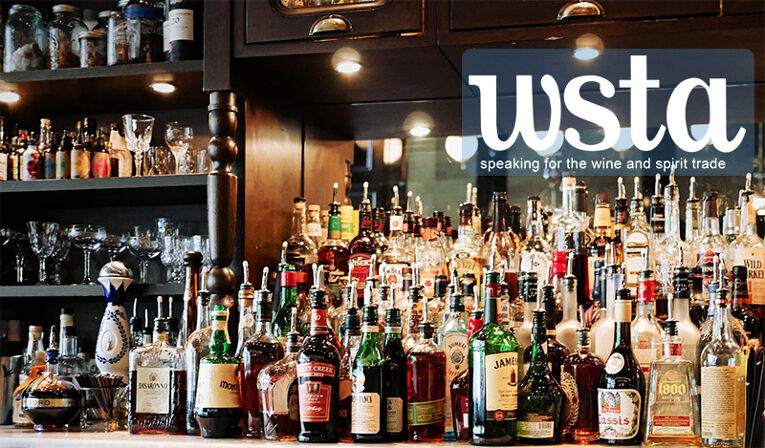Alcohol fraud costs the British public £600 million every year and can be extremely harmful to your health

A guest blog from the Wine and Spirit Trade Association explains this cost and what can be done about it.
Illicit alcohol: how it affects you and your community
The Wine and Spirit Trade Association (WSTA) represents over 300 companies in the UK’s alcohol supply chain. Sadly, fraud will affect every one of these companies in one way or another.The complex nature of how illicit alcohol ends up on the market means that the police can’t tackle this problem alone.
However, at a time when protecting our communities, businesses and public services, particularly the NHS, has never been so vital, there are things that you could be doing to help tackle this crime.
This blog focuses on frauds relating particularly to beers, wines and spirits.
Duty fraud occurs where criminals sell alcohol without having paid the UK’s excise duty.
Currently, the wine and spirits industry pays about £12bn per year in excise duty, which goes towards paying for essential public services, like hospitals and schools.
It’s estimated that about £600m per year across wines, beers and spirits is lost through duty fraud.
This is money that should be going towards boosting desperately-needed public services during the pandemic, and not to criminal gangs. The negative impacts reach much further than taking money away from the services we desperately need in these times:
Currently, the wine and spirits industry pays about £12bn per year in excise duty, which goes towards paying for essential public services, like hospitals and schools.
It’s estimated that about £600m per year across wines, beers and spirits is lost through duty fraud.
This is money that should be going towards boosting desperately-needed public services during the pandemic, and not to criminal gangs. The negative impacts reach much further than taking money away from the services we desperately need in these times:
- It puts money into the pockets of criminals, who use it to fund other activity such as people trafficking;
- It damages businesses and puts valuable and much-needed jobs at risk by taking customers away from legitimate companies.
When the UK leaves Europe at the end of 2020, it will impact the wine, beer and spirits sector across the UK, but, crucially, for the rest of us, this will mean we can’t bring back as much alcohol for personal use from the EU and will be limited to, for example, two cases of still wine.
With almost all the wine drunk in the UK being imported, and over half of that coming from the EU, fraudsters will take advantage of this situation. These criminals will be looking for ways to smuggle more alcohol into the UK, bypassing the duty tax and stealing from important public services which, during the pandemic, we need more than ever.
With almost all the wine drunk in the UK being imported, and over half of that coming from the EU, fraudsters will take advantage of this situation. These criminals will be looking for ways to smuggle more alcohol into the UK, bypassing the duty tax and stealing from important public services which, during the pandemic, we need more than ever.
The good news is that there is something we can do about it. Have you experienced any or all of the following?
This simple service allows you to report these crimes 100% anonymously. Even if you opt in to the two-way option online, you remain anonymous.
If you wish to, you can choose to give your details when reporting – these will then be treated confidentially by trained call agents and will then be sent to the Intellectual Property Office to enable the appropriate action to be taken.
It may be that you can provide a vital piece of intelligence in a major investigation, however big or small it is.
- Fliers being put around in your area advertising alcohol at a price that seems too good to be true;
- Suspicious, unmarked vans visibly selling alcohol in car parks, industrial estates etc?
This simple service allows you to report these crimes 100% anonymously. Even if you opt in to the two-way option online, you remain anonymous.
If you wish to, you can choose to give your details when reporting – these will then be treated confidentially by trained call agents and will then be sent to the Intellectual Property Office to enable the appropriate action to be taken.
It may be that you can provide a vital piece of intelligence in a major investigation, however big or small it is.
The fake alcohol menace is another level of threat altogether. It may be inferior liquid posing as a premium product. More worryingly, it may not be fit for human consumption at all and contain methanol or other harmful substances, which could even lead to death.
Signs that something might be fake include:
Signs that something might be fake include:
- an unfeasibly low price;
- an unfamiliar brand that imitates better-known ones;
- poorly-printed labelling: misaligned text, smudged ink etc.;
- the product being sold in unusual places;
- the product tastes wrong.
Why should you tell us what you know?
Illicit alcohol and duty fraud are a threat to individuals and communities across the UK, through the theft of funds from public services, the sale of potentially dangerous products - unbeknownst to the consumer - and the funding of wider organised crime.
If you know anything about alcohol fraud, then tell us what you know. 100% anonymously. Always. Call 0800 234 6388 or go online at www.alcoholfraudline.com. Speak up. Stay safe.
Author: David Richardson
David is the Regulatory and Commercial Affairs Director of the Wine and Spirit Trade Association. He spent 16 years as a prosecutor, mainly on complex fraud and smuggling cases. He advises WSTA members on counter-fraud and business resilience.